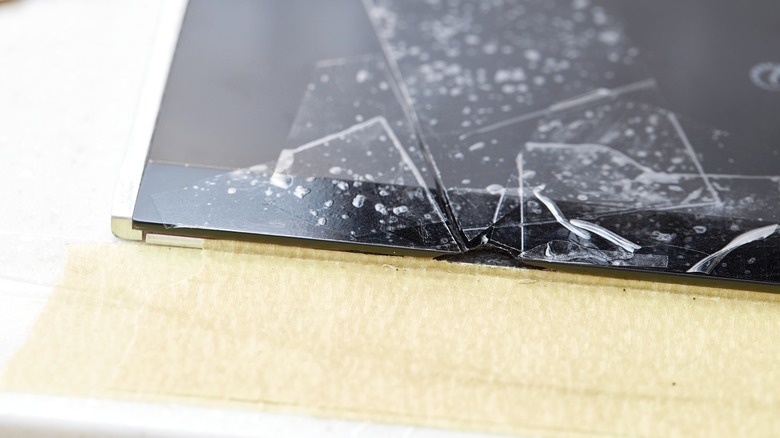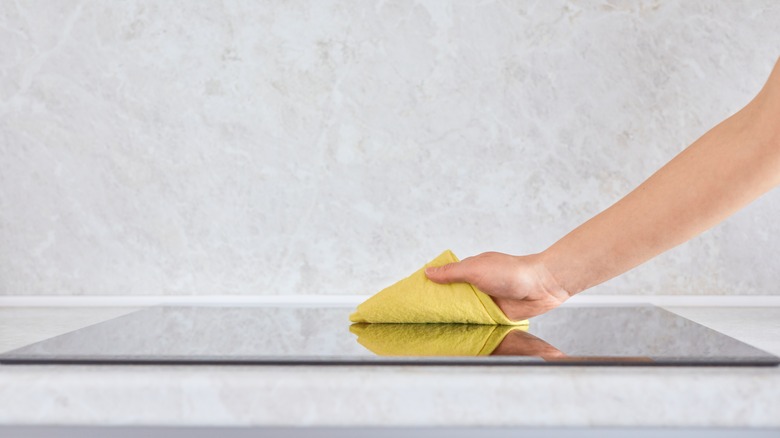The Electric Stovetop Cleaning Mistake That's Sure To Damage Your Appliance
Electric stovetops are modern and convenient, and while they're generally one of the easier locations in your kitchen to clean, they do require you to take the right approach. Above all else, you need to avoid one particular mistake that's often the culprit of damaged electric stovetops — that is, using harsh cleaning products.
Which products? Be sure that you're avoiding harmful chemicals such as bleach. Ammonia is another one to stay away from, as well as — believe it or not – oven cleaners. And before you pull out the everyday glass cleaners that you use around the home, such as Windex, know that they are best avoided, a well, unless said glass cleaner is specifically made for glass stovetops.
Each of the aforementioned chemical cleaners can be abrasive and potentially cause scratches, streaks, and other issues with your stovetop. While that damage level can vary, even the most minor scratches can be the first step toward seeing your prized ceramic glass cook top get cracked. That's just because those small scuffs and marks can potentially develop into larger cracks, which themselves harbor bacteria. It's a downward spiral you'll want to avoid.
Gentle cleaners and gentle cleaning tools are the right approach for your glass electric stovetop
Instead of cleaning with abrasive cleaners, you should rely on gentler cleaning ingredients such as vinegar and baking soda. Vinegar, baking soda, and lemon juice are all generally safe to use on glass stovetops if you need to remove stains from them. Even then, though, it's not just about what cleaner you're using — avoiding scratching also means using the right technique and tools.
Don't use a rough, abrasive scrubbing pad, sponge or brush or any tools such as steel wool that could potentially damage your stovetop. It's best to opt for soft, microfiber cloths and soft sponges each time you clean your stove top. Avoid scrapers when trying to remove burnt-on stains. If you feel like you must use a metal scraping tool, make sure to do so with the proper technique — understand how to remove burn stains on an electric stove correctly before getting started. Also, always be sensitive to the stove's durability to prevent scratching. Always clean softly and use gentle tools, and don't clean your stovetop when it's still hot.
If you've spent the money and invested in one of the best electric stoves that are available, you'll want to do everything you can to take good care of it. By avoiding harsh chemicals, doing proper maintenance, and paying attention to materials and technique, you can ensure your electric stovetop will last and look great for years to come.

